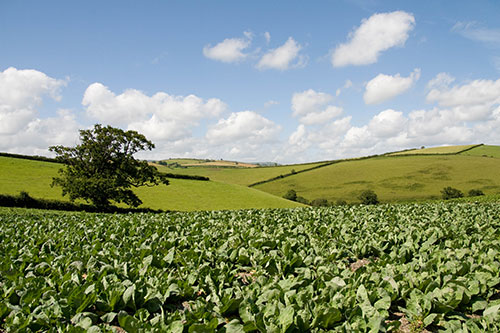
Shifting diets away from intensively-farmed animal products is one of the “rapid and far-reaching” transitions that must happen if global warming is to be kept within 1.5 degrees, a major new climate change report has warned.
Published today (8 October) by the prestigious Intergovernmental Panel on Climate Change (IPCC), the report said that limiting warming to 1.5 degrees is possible, but will require “unprecedented changes” in energy, land and ecosystems, urban infrastructure and industry. Currently, the world is on track to see temperatures rise by between 3 and 4 degrees.
As well as a shift in diets, the report also recommended a move to low or zero-emission power, such as renewable energy, electrifying transport, and developing green infrastructure, such as green roofs. Emissions from the livestock industry are one of the top contributors to global emissions, accounting for 14.5 per cent of the global total, primarily from the beef and dairy sectors.
Among the specific changes in land use and food production that would help limit emissions, the report highlighted sustainable diets and reduced food waste, soil sequestration, reduced deforestation and responsible sourcing.
The report was commissioned after the landmark Paris Climate Agreement in 2015, which included a pledge to hold “the increase in the global average temperature to well below 2°C.”
“Every extra bit of warming matters, especially since warming of 1.5°C or higher increases the risk associated with long-lasting or irreversible changes, such as the loss of some ecosystems,” said report co-chair, Hans-Otto Pörtner.
Another co-chair, Debra Roberts, told the BBC: “The report is very clear, this can be done, but it will require massive changes, socially and politically and accompanied by technological development.”
The report lists several major benefits of limiting warming to 1.5, rather than 2 degrees, including smaller losses in staple crops including maize, rice and wheat, and reduced risks to marine biodiversity. Coral reefs are predicted to completely disappear if temperatures rise by 2 degrees, compared to declining by 70-90 per cent at 1.5 degrees.
Sea levels will continue to rise under 1.5 degrees, but 10 million fewer people would be exposed to the risks of flooding than under 2 degrees, the report said.
The report also stressed that for any change to have an effect, it must be a ‘whole systems’ approach that links different sectors together with no trade off.
For example, turning land over to bioenergy crops to reduce reliance on fossil fuels can have a negative effect on food security by reducing the land available for food production, and cause biodiversity loss. On the other hand, reforestation helps absorb carbon dioxide, and can also provide food, work to purify water sources and protect ecosystems.
“The good news is that some of the kinds of actions that would be needed to limit global warming to 1.5°C are already underway around the world, but they would need to accelerate,” said report co-chair, Valerie Masson-Delmotte.
The IPCC is the leading world body for assessing the science related to climate change, its impacts and potential future risks, and possible response options. The report was compiled by 91 authors from 40 countries.















0 Comments